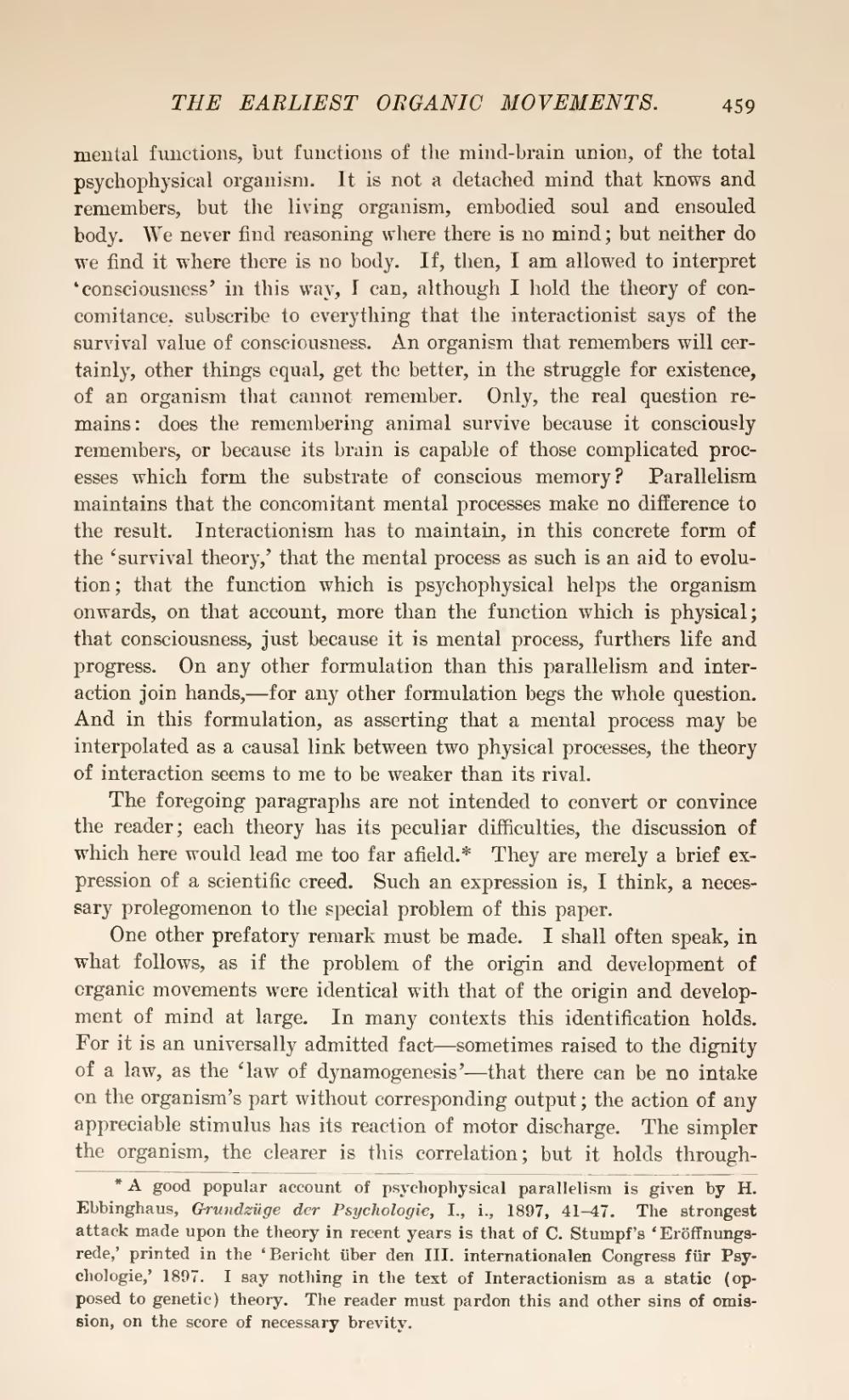mental functions, but functions of the mind-brain union, of the total psychophysical organism. It is not a detached mind that knows and remembers, but the living organism, embodied soul and ensouled body. We never find reasoning where there is no mind; but neither do we find it where there is no body. If, then, I am allowed to interpret 'consciousness' in this way, I can, although I hold the theory of concomitance, subscribe to everything that the interactionist says of the survival value of consciousness. An organism that remembers will certainly, other things equal, get the better, in the struggle for existence, of an organism that cannot remember. Only, the real question remains: does the remembering animal survive because it consciously remembers, or because its brain is capable of those complicated processes which form the substrate of conscious memory? Parallelism maintains that the concomitant mental processes make no difference to the result. Interactionism has to maintain, in this concrete form of the 'survival theory,' that the mental process as such is an aid to evolution; that the function which is psychophysical helps the organism onwards, on that account, more than the function which is physical; that consciousness, just because it is mental process, furthers life and progress. On any other formulation than this parallelism and interaction join hands,—for any other formulation begs the whole question. And in this formulation, as asserting that a mental process may be interpolated as a causal link between two physical processes, the theory of interaction seems to me to be weaker than its rival.
The foregoing paragraphs are not intended to convert or convince the reader; each theory has its peculiar difficulties, the discussion of which here would lead me too far afield.[1] They are merely a brief expression of a scientific creed. Such an expression is, I think, a necessary prolegomenon to the special problem of this paper.
One other prefatory remark must be made. I shall often speak, in what follows, as if the problem of the origin and development of organic movements were identical with that of the origin and development of mind at large. In many contexts this identification holds. For it is an universally admitted fact—sometimes raised to the dignity of a law, as the 'law of dynamogenesis'—that there can be no intake on the organism's part without corresponding output; the action of any appreciable stimulus has its reaction of motor discharge. The simpler the organism, the clearer is this correlation; but it holds through-
- ↑ A good popular account of psychophysical parallelism is given by H. Ebbinghaus, Grundzüge der Psychologie, I., i., 1897, 41-47. The strongest attack made upon the theory in recent years is that of C. Stumpf's 'Eröffnungsrede,' printed in the 'Bericht über den III. internationalen Congress für Psychologie,' 1897. I say nothing in the text of Interactionism as a static (opposed to genetic) theory. The reader must pardon this and other sins of omission, on the score of necessary brevity.
